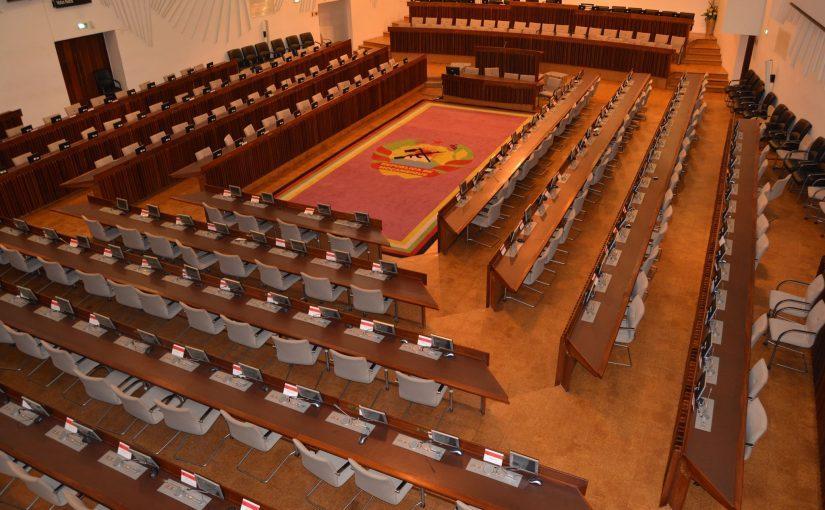Africa-Press – Mozambique. The law establishing measures to prevent and combat money laundering and terrorist financing will return for a review to the Assembly of the Republic, the Mozambican parliament, for the third time.
Mozambique’s Council of Ministers (cabinet) approved the proposed law in its 26th ordinary session in Maputo yesterday.
Speaking at the regular press briefing in Maputo this Tuesday, Council of Ministers spokesperson Inocêncio Impissa explained that the review aims to comply with Recommendation 2 of the Financial Action Task Force (FATF).
According to Impissa, who is also Minister of State Administration and Civil Service, the review will “ensure greater effectiveness, speed, and institutional coordination in preventing and combating money laundering and terrorist financing” in the country.
The law was approved by the Parliament in 2022 and underwent two specific revisions, the first in August 2023, and the second in March 2024.
Implementation of the law brings significant benefits to maintaining the integrity of the FATF and preventing financial institutions from being used for illicit activities.
The instrument will provide greater protection for various economic sectors, such as the financial, real estate, and corporate markets, preventing the infiltration of illicit funds and market distortions, and ensuring that transactions are legitimate and transparent.
Mozambique is in the final stages of fulfilling the evaluation recommendations of the 7th progress report for its removal from the FATF ‘Grey List’.
In recent years, the government has made significant progress, with only one indicator missing out of approximately 40 recommended by the FATF.
In June 2021, the Eastern and Southern Africa Anti-Money Laundering Group (ESAAMLG), a regional body similar to the FATF, established in 1999, of which Mozambique is a member, adopted and published the Mutual Evaluation report for Mozambique. It identified deficiencies in compliance with FATF standards, namely weaknesses in the country’s legal, regulatory, and institutional frameworks regarding the effectiveness of its anti-money laundering and terrorist financing regime.
This placed the country on the FATF Grey List, which prevents access to various international financing instruments.
Mozambique will host a meeting of the FATF High-Level Committee on September 11th and 12th.
Also in this Tuesday’s cabinet session, the executive decided to grant the National Institute of Tourism (INATUR) the right to license, develop, and negotiate a tourism project on Santa Carolina Island, adjacent to the Bazaruto Archipelago National Park, Vilankulo district, southern Inhambane province.
The tourism project aims to economically exploit the tourism potential of Santa Carolina Island.
In the same session, the government approved the Organic Statute of the Civil Aviation Institute of Mozambique (IACM) was also approved, repealing the previous Decree No. 70/2016. The update aims to align the institute’s operations with the regulations on autonomy, organization, and budgetary regime of public institutions.
The government also recognized Paulo António da Graça as the new Chairman of the Board of Directors of the Energy Regulatory Agency (ARENE).
The session included an analysis of the report on the participation of the President of the Republic, Daniel Francisco Chapo, in the Summit of the Community of Portuguese-Speaking Countries (CPLP), held from July 17th to 18th in Bissau, Guinea-Bissau.
For More News And Analysis About Mozambique Follow Africa-Press






